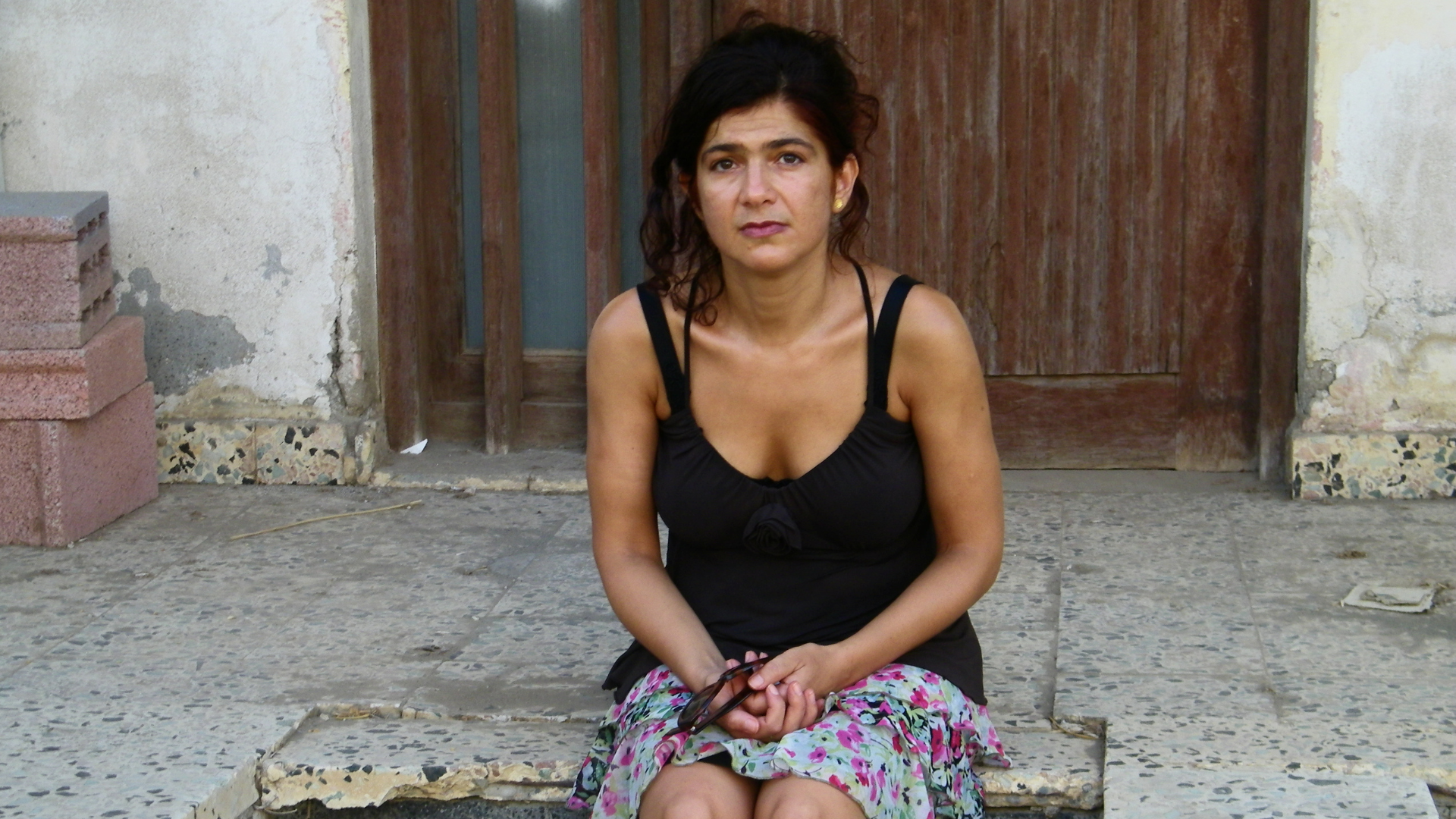A poet, a photographer, a singer who might otherwise have written about existential issues, beauty, eros or music, “is irrevocably marked by the tragic memories of the Turkish invasion; she writes in order to cure the trauma of childhood,” notes Vassilis Vassilikos, author of the novel Z. “But she also wants to cry out to the world: ‘This is what happened to us — we left only with our summer T-shirts’…”
That August night when soldiers came and woke Andrea’s family up at 1.30am the morning, they were yelling: “You must leave at once, the Turks are coming.” Everybody was in a panic; everyone wanted to get onto her family’s big truck, as not many people had cars then. And while everyone else was concerned about saving their lives, Andrea was worried about her animals.
“I begged my father to make room for them,” Andrea remembers.
Galakti, her baby lamb, was later saved by a Turkish-Cypriot friend, who received bottles of whisky from her father every year in thanks. She took Kloklo, her chook, in her arms that night, but Eta, her pig, was too big to carry — and like so much else they left behind, disappeared into the folds of history.
Andrea was not yet a poet, but the seed had been planted. Her pen would grow from that wound.
“It hasn’t shaped my poetry; it is my poetry,” she corrects.
Born in Morfou, “where no one can be born anymore,” she stresses with sadness, her early childhood was paradise — until it wasn’t.
Raised not by her parents but by her maternal grandparents, she remembers village fiestas, shopping trips to Morfou, ice creams in Kyrenia, and playing barefoot by the lighthouse. Years later, after reading her poem Kyrenia, French poet-philosopher Jean-Pierre Faye wrote: “The lighthouse lights up a child’s feet in the water, but becomes a painful memory.”
She recalls her early life with vulnerability.
“My grandfather gave me unconditional love,” Andrea says. “And when he died, the light of my world was switched off.”
Her grandparents passed away within months of each other when she was six. Uprooted from everything she knew, Andrea was sent to live with her biological parents — nearly strangers to her.
“By then, I was already formed,” she says.
She coped by writing letters to her grandfather and tucking them under her pillow — therapy in the absence of language; poetry before she had a word for it. “I wrote the things I couldn’t say to people, the things I couldn’t share with anyone. I wrote letters to God…”
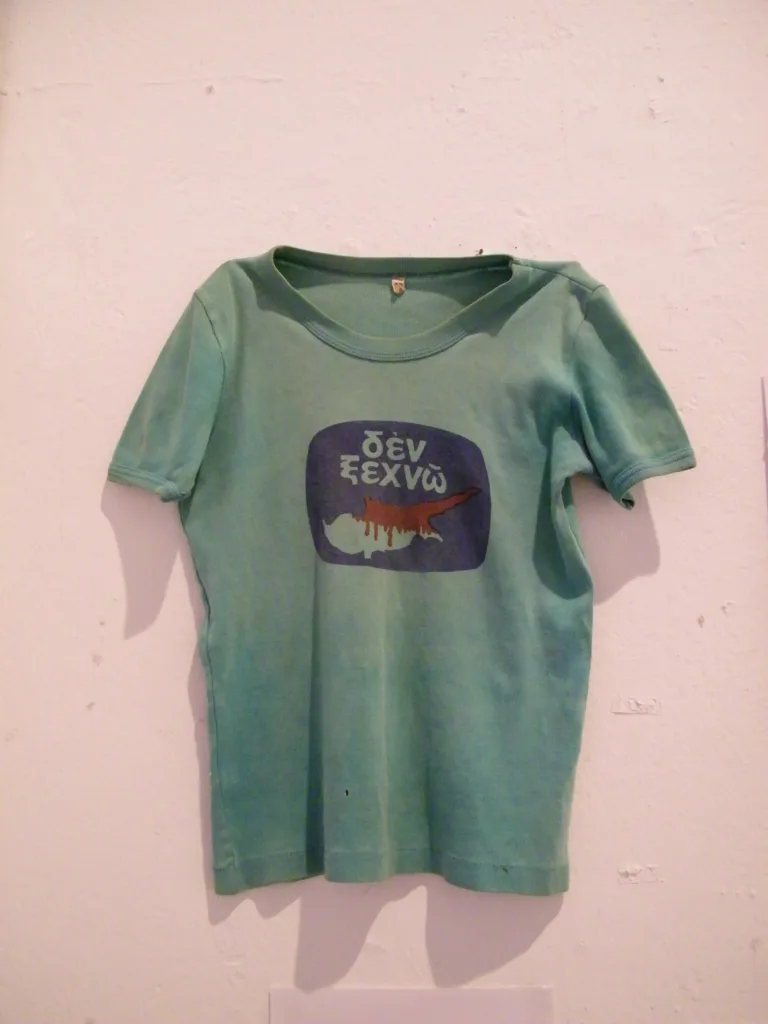
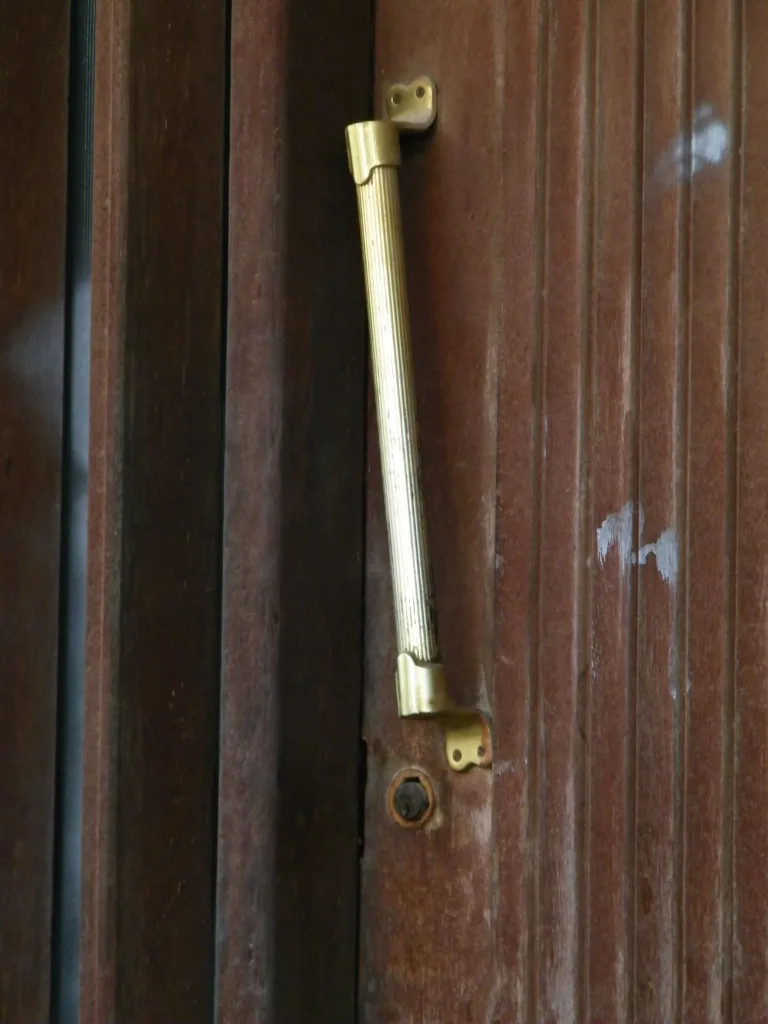
Then came the war. Like 250,000 others, the Demetriou’s fled. Her father, a tavern and café owner, rescued as many people as he could that night with his truck. Andrea wanted to save her pets, and Christella didn’t want to leave. She later drew herself falling off the truck that starless night. Three days later, Andrea’s parents returned to their home to salvage heirlooms.
“It was my birthday when they went back,” Andrea says. “They just made it out. Some of the older people who stayed behind and refused to leave were tortured to death, and one was beheaded. Others were declared missing and are still missing to this day.”
“The 20th of July is the day sensibility eclipsed from earth. When something so horrific, so inconceivable happens and the world stands still, does not react, and gets used to it, there is something terribly wrong with this world and their idea of sensibility. It’s a day I cannot endure and would like to erase from the calendar. However, this day keeps repeating itself in other places, and the world still does nothing to stop it,” Andrea says, remembering the day of the invasion.
In the schools of Nicosia, they were lice-ridden — and this was pointed out. Outsiders. Children of nowhere. Later, in the refugee-founded Peloponnesian village of Gastouni, she finally felt understood. “They knew. They had lost, too.”
By 1976, Andrea was in Australia — another uprooting. “Of course I didn’t want to leave. I wanted to stay and fight. I said to my father, ‘If we keep retreating, if we all leave, they’ll take over the whole island.’ But I was just a child on their passport.”
She left home again at 14. “I only ever lived with my parents for seven years. I didn’t quite belong.” Instead, she found kinship among artists, writers, and the intelligentsia. Among them were Jeannie Lewis, the award-winning soprano whose voice sliced through silence, and the late Tim Colebatch, politics and economics editor at The Age.
Through Jeannie — her closest friend in Australia — she was introduced to the art world, meeting Gough Whitlam and his wife, as well as Patrick McCaughey, then Director of the National Gallery of Victoria.
She dedicated her first book to refugee children: “Because their wounds should somehow be healed. I thought there would not be any more children like us, but I can see the displaced, starving and dying children today who can’t make sense of the violence against them. Children nonetheless never forget; they demand justice because they are idealistic — they feel the unachievable is achievable.”
Her last book, The Inconsolable Clock, was dedicated to the founder of the Socialist Party of Cyprus, the legendary late Vassos Lyssarides — nearly assassinated shortly after the invasion — with a poem she wrote for him: “I no longer need the compassion of the world as I have your compassion; I no longer need to be deciphered by the world as I’m deciphered by you.”
In Melbourne, Andrea was a major part of the indelible phenomenon called Tsakpina, initiated by poet Komninos. The cultural hub was much loved by Manos Hatzidakis and Sotiria Bellou, as well as Midnight Oil and Redgum. It challenged conformity to the maximum and fused activism with art. Tsakpina — a Greek term loosely translated as “minx” — hardly captures the defiant energy it brought to the Australian and Greek Australian scene. Andrea’s radio commentaries were also known for their caustic humour and unrelenting honesty.
Andrea’s poetry doesn’t whisper — it sings, it weeps, it rages. Her first collection, The Mountains Couldn’t Walk Away, is beautifully illustrated with her own photographs — a school desk where she once wrote, and her grandparents’ faces dissolving into a blue Mediterranean sky in a deserted cemetery with broken crosses.
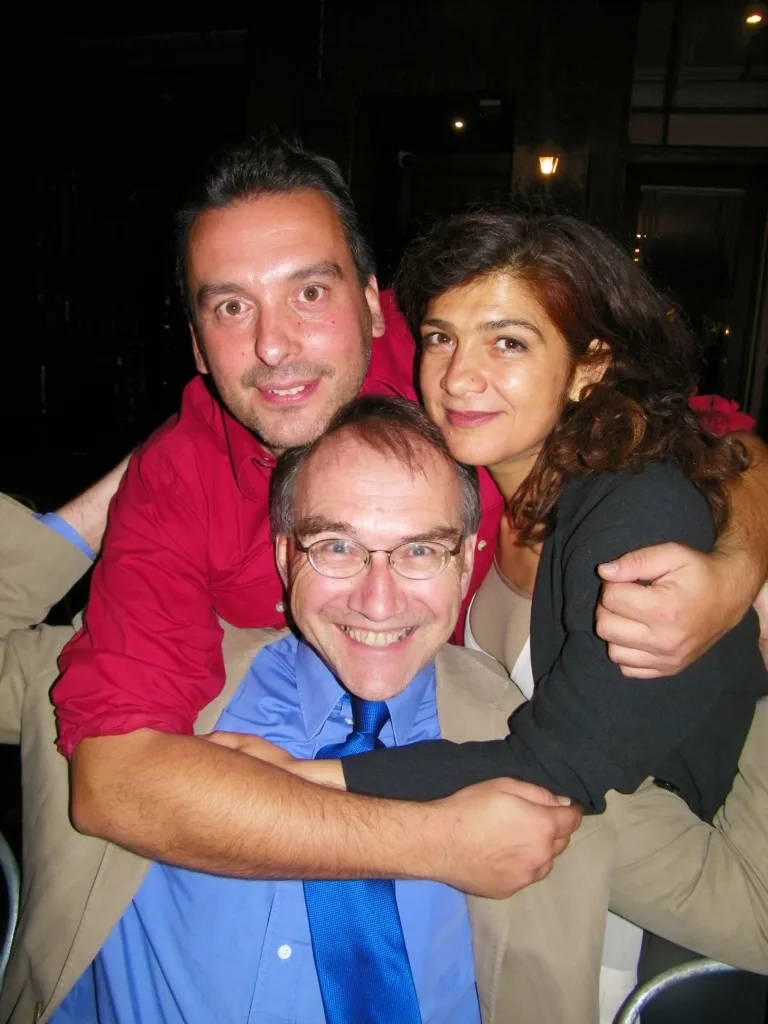
Acclaimed French-Greek director Costa-Gavras, upon reading the collection, wrote: “I read your book, The Mountains Couldn’t Walk Away, with a feeling of deep emotion and sorrow. In the end, what remains and completes us is the poem, ‘If only he (I) could be given a bouzouki with which he (I) could travel to the sky and to Cyprus, to the Cyprus he loved so…’” The poem Epiphany refers to her father’s death and his final wish to be buried at home.
Christos Tsiolkas described her poetry as “refugee laments that carry echoes of the Psalms… and of Mahmoud Darwish.” Arnold Zable saw in her grandfather’s presence a symbol of “unconditional love and the longing for return.” Prominent journalist Tim Colebatch highlighted her persistent political fire, writing: “Andrea’s outrage is the kind that doesn’t fade. Her poems are the voice of those who will not forget.”
And she hasn’t.
In 2003, Andrea returned to her village. Her childhood home seemed unrecognisable at first. Her grandfather’s grave had been desecrated; fragments of his cross were scattered around. “I clutched what remained of it, and wept,” she says. “That was my pilgrimage — I took a piece of his cross with me.”
She continues to “return” to the village through her cousin Avgoulla, who speaks to her about it every second day. “This is another song your father used to play; it talks about eternal love,” she told her the other day.
“She talks about people’s habits, remembers everything vividly because she is older than me. I said to her one day, ‘Who will remember the village when we die? Who will remember it in fifty years?’”
Today, she is finishing her new book Agamemnon — a reconciliation with the father she had and didn’t have. Her late sister Christella’s art is permanently housed at the Greek Consulate in Melbourne, according to an announcement by former Greek Consul Emmanuel Kakavelakis — a tribute to memory, Greece, Cyprus, the diaspora, and resilience.
Even though Andrea does not believe in competition and has never participated in one, her work has been used as teaching material in schools and high schools in Greece and Cyprus.
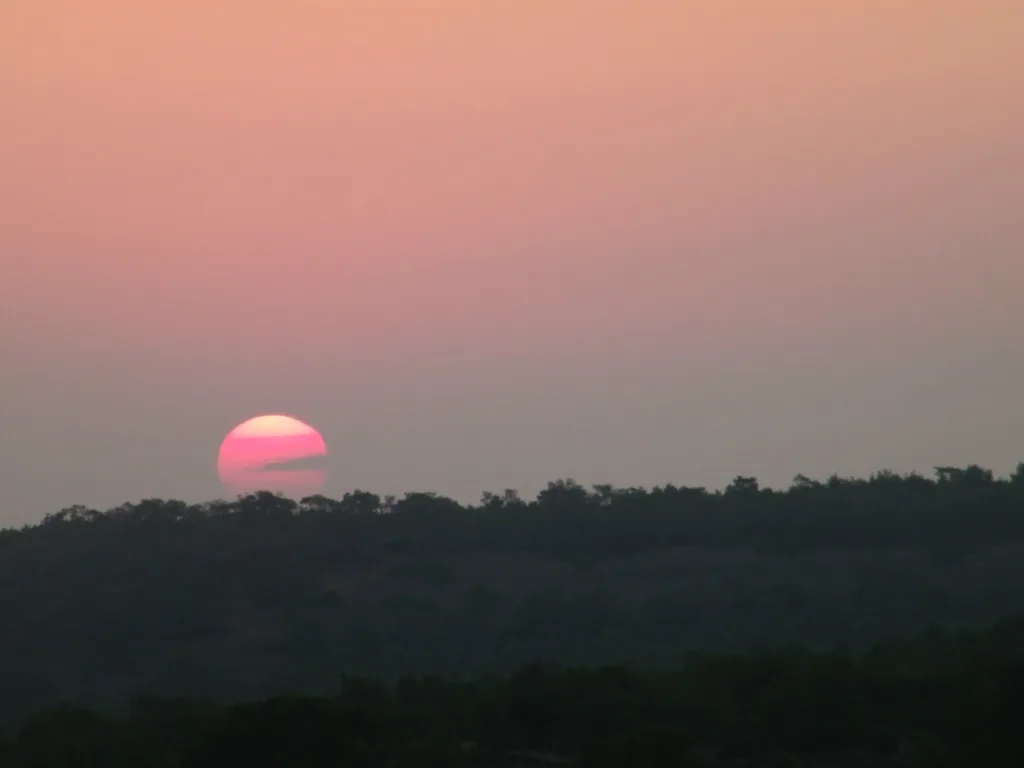
Andrea herself is a living archive. Her verses walk alongside Monet’s water lilies, Kusama’s red flowers and ancient Greek statues — or so she once told Sally Heath in an interview with The Age.
A final conversation with her father still haunts her. “I wish I could have told him that I loved him.”
Her favourite game? “Challenging people to the max and stretching their limits.”
Her secret? “Humanity is a disappointment. And there is so much trouble in paradise.”
What is beauty? “It’s to be fully understood, to be fully embraced; it’s the elimination of loneliness; it’s when someone sheds light into your soul, when they are in your mind and know what you are going to say before you say it.”
The best thing anyone has said to her? “Leonard Cohen once told me, ‘If this will make you happy, if this will make you feel good, I will come and fight with you to take your land back.’ This is the most beautiful thing anyone has ever said to me. He understood my deeper pain — this is so much more powerful than ‘I love you.’ He was that kind of man — ideal.”
Andrea sings, and in her own words, she would like to be remembered: “As someone who sung and danced against the cruelty of time and against the cruelty of humankind.”
